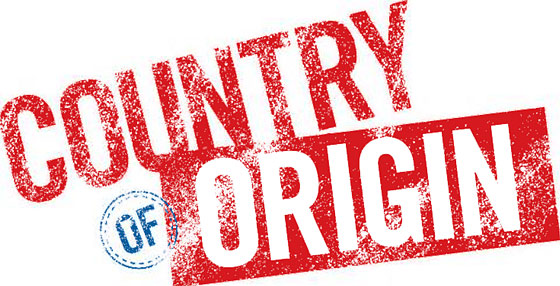Grocery Store Food – Do You Check Country Of Origin?
Do you know where your food comes from? Do you care?
When you shop at your grocery store, do you ever look at the food product to see if there’s a label or sign identifying the country of origin?
Here’s what you should know…
According to the U.S. Department of Agriculture Foreign Agricultural Service, we in the United States are importing more than 70 million tons of food annually.
Nearly all of the food imported into the U.S. is not inspected. Of the tiny slice that is inspected, literally thousands upon thousands of tons are rejected for official reasons including the following:
Filthy, Salmonella, Pesticide, Insanitary, Listeria, Unsafe additives, Poisonous, Melamine, Histamine, Allergen, Yellow #5, Aflatoxin, Cyclamate, Bacteria, Transfat, Foreign object, Substitute, Off odor, Unfit for food, EColi, Unsafe substance, Diseased, Imitation, Forbidden, HepatitisA, Color additive
Apparently most of the rejections are due to “Adulteration” which includes foods found to contain filth, insects, illegal pesticides, or contaminated by bacteria like salmonella or botulism.
Vegetables, fruits and seafood’s have the most violations.
With that said, and knowing that apparently 98% (or more) of imported food is not being inspected, one wonders how much of that food would also be rejected via any of the many listed reasons above…
As you have probably noticed at grocery stores, there are not many food products with ‘country of origin’ labels. It is difficult if not impossible to know where the food has come from. In fact, in June of this year (2015) Congress voted to REMOVE (repeal) ‘country of origin’ labeling requirements (H.R. 2393) for meat. Our government in fact does NOT want us to know where our food comes from. Why? Because our reps are influenced more by money – lobbyists – than we the people. The majority of we-the-people want country of origin labeling.
A handful of powerful corporations make most of the decisions that affect the food we eat. Moneyed interests often (always?) have too much influence over government officials who are supposed to serve the public good.
If given a choice, I would suppose that most Americans would be fairly comfortable with foods coming from certain countries which they trust more than others. For example, what would you trust more… Salmon from Norway or Tilapia from China?
Certain countries have a worse reputation and lower or non-existent standards compared to us. And therefore, knowing that 98% or more of their food exports will go un-inspected, they may ‘cut corners’ as much as they can get away with in order to maximize their own earnings. Do you want to take that chance with the foods that you eat?
Do you also realize that even though a given resource may originate in the United States, there is a likelihood that it was sent to China for ‘processing’ and then returned to the U.S. for consumption (because it’s cheaper)? It happens all the time… With all sorts of resources.
Remember several years ago when dog food (much of which is ‘made in China’) was killing dogs all across America?
Yesterday we talked about How Grocery Inflation Is Being Covered Up by ‘tricks’ including resized packaging, product dilution, reduced weight metrics, etc… The reason (obviously) is to try and ‘hide’ from you the fact that the effective price of your groceries are going up. They think we’re stupid.
They are accomplishing this not only by the games they play with packaging, but also by the SOURCE of the food itself. Cheaper is better, right? WRONG. Have you heard the saying that ‘you get what you pay for’? Do you want to risk your health and well being?
What can we do about it?
I must admit, I have little to no faith in our government or congressional representatives. Most any complaint will fall on deaf ears. Their ears are mostly (only?) tuned to the sound of ‘cha-ching’. While I still advocate expressing one’s concerns to their representatives, my own personal approach is not to look towards government, but to look towards what I can do about it myself. To put my money where my mouth is, so to speak…
Make every effort that you can to buy local. Keep the money in your own community. Seek out local sources of food. They’re out there if you look for them. This will obviously be easier if you live rural – search out farmers of all sorts, even those who raise cattle, etc..
I’ve said it a million times, but grow some of your own food. During the winter, plan a garden so you will be ready to go in the Spring.
Ask your grocer about where a particular food came from! Don’t be shy about this.
While in the grocery store, pay attention to foods that do have country-of-origin labeling.
What are your thoughts and ideas about this situation?

